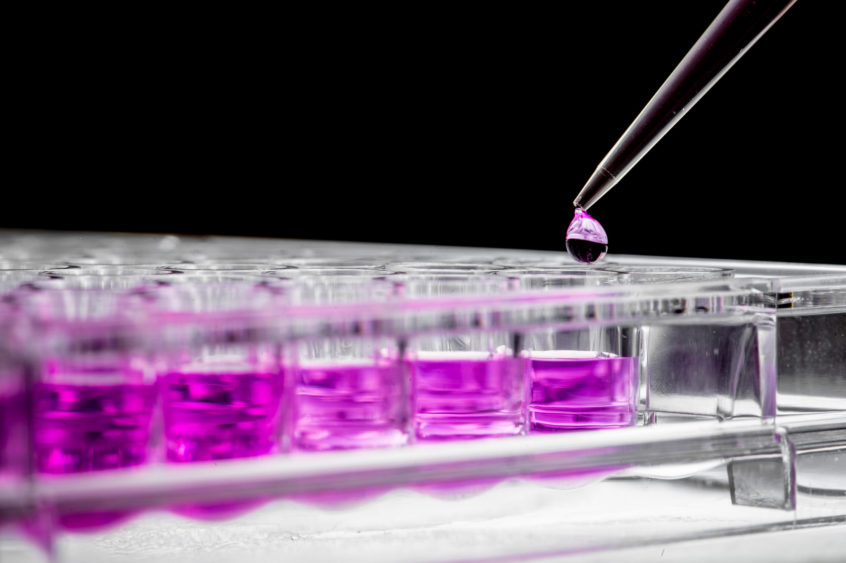I am please to announce this year’s Parseghian Fund grantees. Thanks to the generosity of so many and the commitment of these scientists and clinicians the APMRF was able to fund 14 new projects that will help find a cure for NPC disease. The research projects listed below represent a variety of important areas including furthering our understanding of NPC biology, identifying new therapeutics and potential drug targets, and the development of novel biomarkers and technologies. We were also able to support a joint project to develop a new born screen to help identify children with NPC disease early in their development.
We will keep the NPC community and our supporters up to date on the progress of these research projects. A special thank you to our Science Advisory Board for reviewing the submitted proposals and their dedication to helping the APMRF find a cure for NPC disease.
Funded Projects
Brian Blagg, Professor, Director of the Warren Family Research Center for Drug Discovery and Development, University of Notre Dame – Title: Investigation of NPC disease and Lysosomal Storage Disorders through Computational and Medicinal Chemistry Studies
Daniel Heller, Assistant Member, Memorial Sloan Kettering Cancer Center – Title: In Vivo Reporter for NPC disease Drug Discovery
Xuntain Jiang, Assistant Professor of Medicine, Washington University – Title: Oligosaccharides as a CNS biomarker for NPC disease
Paulina Ordonez, Assistant Professor, University of California, San Diego – Title: Metabolic characterization and pharmacodynamics of mitoprotective compounds to advance and FDA approved treatment for NPC
Suzanne Pfeffer, Professor of Biochemistry, Stanford University – Title: NPC1-mediated export of cholesterol from lysosomes
Forbes D. Porter, Senior Investigator and Clinical Director, Eunice Kennedy Shriver National Institute of Child Health and Human Development, National Institutes of Health – Title: Development of hypomorphic NPC1 zebrafish and i3neurons to facilitate drug screening
Susanne Schneider, Professor, Ludwig-Maximilians-Universitat Munchen – Heterozygous mutations of NPC predispose to late-onset neurodegeneration – a clinical, radiological, and molecular character
Kevin Vaughan, Associate Professor, Notre Dame – Stimulation of StARD9 as a Compensatory Mechanism for NPC disease
Nieng Yan, Shirley M. Tilghman Professor of Molecular Biology, Princeton university – Structure and mechanistic elucidation of NPC1 and NPC2-mediated cholesterol egress
Noam Zelcer, Professor of Molecular Regulation of Metabolism, Academic Medical Center of the University of Amsterdam – Interrogating cholesterol trafficking and NPC1 with mammalian haploid genetics
Pei Zhao, Research Associate, The Scripps Research Institute -Title: High Definition management of NPC1 variation through proteostasis-based redox system
Roberto Zoncu, Assistant Professor of Biochemistry, Biophysics, and Structure Biology, UC Berkeley – Mechanisms for Lysosomal Cholesterol Sensing and Homeostasis
Mark Walterfang, Neuropsychiatrist and Professor of Neurosychiatry, Royal Melbourne Hospital – Resilience to NPC disease: Utilizing NPC superheroes to develop new therapeutic targets that buffer loss of function of NPC1
Pam Andrews, Firefly Fund – The Firefly Fund’s Newborn Screen Initiative for NPC1
2017 two-year funded projects:
Dan Ory, Alan A. and Edith L. Wolff Distinguished Professor of Medicine, Washington University – Title: Proteostatic regulation of treatment for NPC1 disease- Title: Optimization of sHDL nanoparticles for treatment of NPC
Charles Venditti and Bill Pavan, Senior Investigators, National Institutes of Health – Title: AAV gene therapy for NPC


